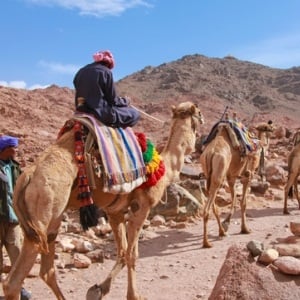
Vulnerable countries, especially in Africa, need to defend themselves against the possible seasonal spread of Middle East Respiratory Syndrome (MERS) in the first half of 2015, the World Health Organisation said on Wednesday.
A WHO Emergency Committee recommended steps "to strengthen infection prevention control practices, build capacity of heath care workers and provide protective equipment in vulnerable countries, especially African countries."
Poor infection control and a lack of expertise and equipment are widely seen as key reasons for the rapid spread of the deadly Ebola virus in three west African countries.
Read: Deadly Ebola virus spreading in west Africa
Surveillence of pilgrims
The committee, whose experts issue an update on the disease every three months, also called for improved MERS awareness among pilgrims going to Saudi Arabia for the annual Muslim haj journey and for surveillance of pilgrims during and after haj.
The committee said although there had been significant efforts to strengthen preventative measures against MERS, also known as MERS coronavirus (MERS-CoV), more was needed.
"The current data suggest that MERS-CoV transmission could be seasonal, with an upsurge expected next spring," it said.
MERS, which is thought to originate in camels, has killed 333 people and infected more than 850 since it emerged in 2012.
Read: MERS virus doesn't spread easily
Not a 'public health emergency of international concern'
But unlike Ebola, which has killed 10 times as many people, there was still no evidence of sustained human-to-human transmission of MERS in communities, and the committee said the disease still did not constitute a "public health emergency of international concern".
Aside from travel-related cases, MERS has been confined to the Arabian peninsula, Lebanon, Jordan and Iran.
The number of cases of MERS had fallen since an upswing in April and although transmission was still occurring in small clusters "in health care settings", the spread of the disease seemed "generally contained", the committee said.
Much about the spread of the disease remains unknown, and the WHO committee said. It called for stronger epidemiological surveillance - of humans but also of camels in the Middle East and Africa.
Read more:
Ebola mission head wants progress in 60 days
Nigeria screens ship crews for Ebola
Experts concerned Ebola may become endemic
Image: Camel guide climbs up to Mount Sinai from Shutterstock




 Publications
Publications
 Partners
Partners











